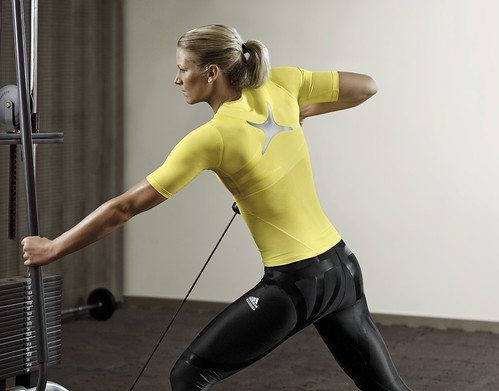Supplementary Training for Judo.

If you are a Judo athlete at some point you will need to consider supplementary training. This term refers to additional training you do that is not Judo. Generally it is such things as running, going to the gym, etc.
The first thing I would say is this, supplementary training is exactly that SUPPLEMENTARY. Your Judo training should be the number one priority with supplementary training being there to address areas in your training that can not be dealt with on the tatami.
As Judo athlete, you need to have an understanding of the physiological demands of competing in the sport of Judo. You also need to understand your body and the reactions it will have to various types of supplementary training.
Judo is generally regarded as being a “power sport”, as opposed as to being an endurance sport such as distance running. Judo does however have an endurance element, so you need to get the balance right. Judo needs raw strength, coordination, balance, speed, suppleness and stamina and more. Judo training itself will help develop you where it is needed, but supplementary training can lead to bigger gains and/or balance areas that your Judo is not hitting. Supplementary training is also excellent for addressing physical issues unique to your body.
For example, you may have suffered an ankle injury in the past. This may have left that ankle weaker in terms of your ability to push through during your throwing action. Spending some extra time in the gym working on your lower legs may resolve this issue and help you deliver the power through your legs equally; improving your throwing technique.
So what supplementary training should a Judo athlete be doing?
What type of supplementary training to do for Judo depends on a variety of factors. Your age, your technical level (both in Judo and the Gym), your goals all need to be considered. You need to consider what demands Judo is placing on your body and what the type of training you are considering demands of you.
Running for example is a form of training that is both popular and controversial.
I ran when I was an athlete (I still do… sometimes). Most Judoka I have met run, road runs, hill runs, sprints. But I know that many people (including some researchers) don’t rate running as being relevant for Judo. I have a very middle of the road attitude to running, which is affected mainly by the level of the athlete I am working with.
I think most Judo athletes starting out could do with some running in their programmes. Distance running will help with your aerobic side and sprints can help with your anaerobic. Running is also good for calorie burn and personally I think the most undervalued aspect of running is the mental side. Running can be mentally challenging and it can also be great relaxation, depending on what sort of run you go for.
Skipping / Jumping rope.
Boxers are famous for skipping, yet it is not as common in Judo circles. I think that skipping is a great exercise for Judo athletes. To skip well, you need to develop good posture and strong legs. Skipping also works the shoulders and back, whilst challenging the cardio vascular system. Skipping can be done inside or outside, it can be intense and short or gentle and longer.
Skipping is all about technique, I recommend popping along to a boxing gym. Buy yourself a good rope, adjust it properly and learn the basics… then practise, practise, practise! You may also want to check out some online videos, like the one below by Buddy Lee for CrossFit.
Gyms
Okay, this is probably the place where you’ll do most of your supplementary training, the gym. First things first, find a good gym, even if it is not the closest one. Find a gym with a good set of strength equipment and a smaller range of cardio gear and classes. As an athlete, the chances are you’ll be looking for free weights and a great work ethic.
You might consider a body building gym. They often have the hardest workers around; my one caveat would be to discuss with the management that you are not a bodybuilder and that you’ll need programmes that are not about muscle hypertrophy as much as most people in the gym.
Which brings me to the main consideration, the staff. You will want some experts to help develop your supplementary training programmes. This may include visits to a physio to identify physical weaknesses. You’ll need to find people who understand sport and ideally Judo, not just helping people get fit and lose weight. As well as a programme, ideally you’ll want access to a strength and conditioning coach / personal trainer. Just like on the mat, a coach at the gym will improve the quality of your training so that you get more from less time.
Get the balance right.
For me the most important thing is to ensure that you get the balance of Judo to supplementary training right. I would almost always say that a Judo athlete should spend a majority of their time doing Judo. Your supplementary training should be targeted and tied to your Judo training and performance goals.
You will need to plan your training as you do all your training. It needs to be scheduled to match your competition schedule and life.
As always, discuss it with your Judo coach and get the best advice that you can.


No facts put forward, reads like this is being put forward for an essay not helpful for judo training